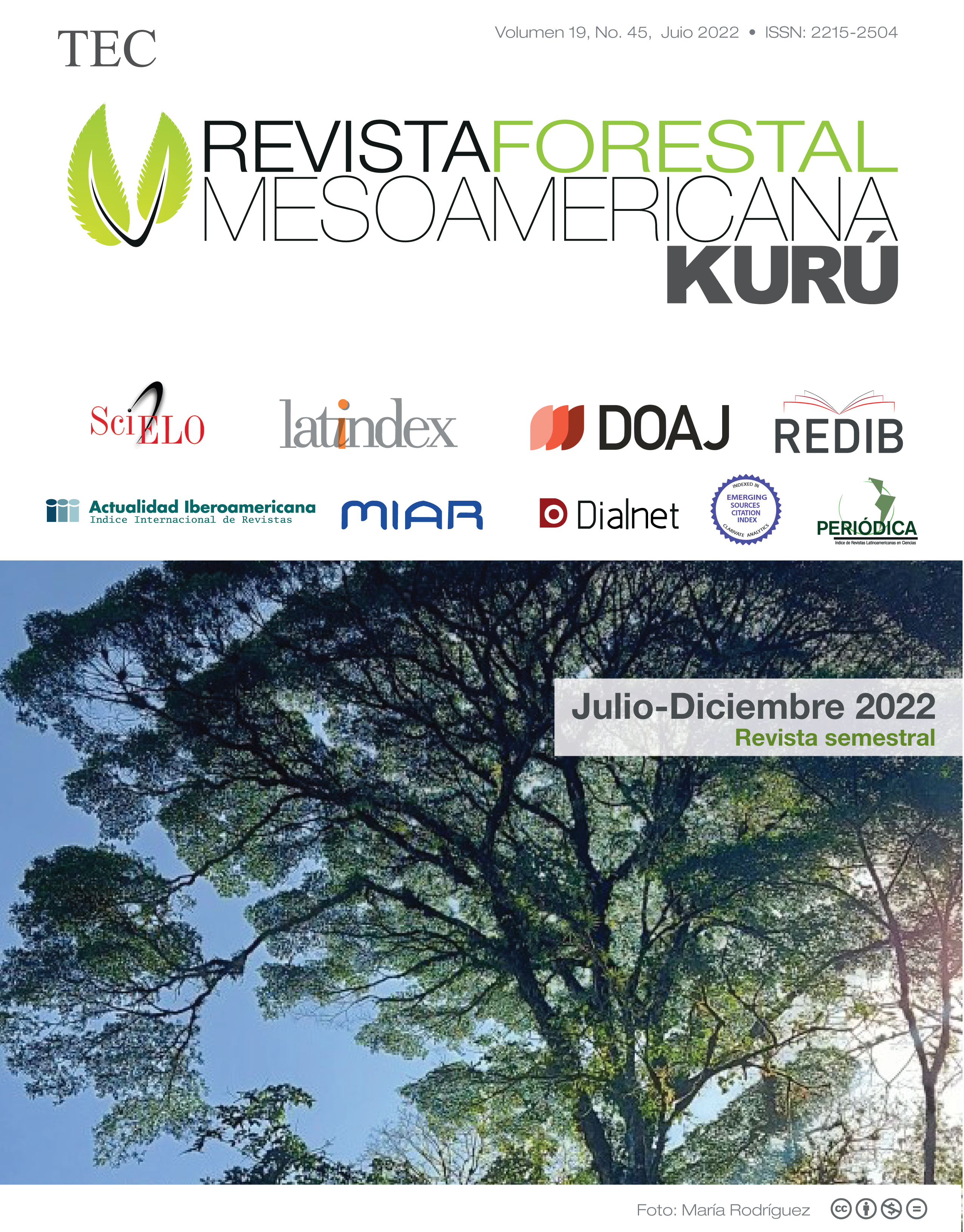Quantification of social, economic and ecosystem indicators that allow to evaluate sustainability in managed forests
Main Article Content
Abstract
In Costa Rica, natural forest management has been regulated rigorously using a hierarchical scheme of Principles, Criteria, and Indicators of Sustainability (PCI's). These systems are complex and have traditionally been used in the ex-ante evaluation of forest management in Costa Rica but have not been used in the ex-post evaluation of managed forests. Creating evaluation systems that allow evaluating sustainability with few criteria is very desirable, but it is more important to have validated systems. In the present study we proceeded to quantify and validate a hierarchical scheme of indicators to use in ex-post evaluation; the first step was the quantification of 30 sustainability indicators defined in previous studies as possible to use in the evaluation of this type. Each indicator was then validated using 3 criteria: accessibility to information, cost of access, and relevance of the indicator in relation to the management unit. From the quantification of the indicators, a total of 25 indicators were validated which represent the ecosystem, social, institutional, and economic dimensions on which sustainability is based. The ecosystem baseline was also defined for the variables basal area above 30 cm in diameter (dbh) and proportion of ephemeral heliophic species above 10 cm in diameter (dbh), this baseline was constructed by forest types according to the minimum and maximum reference values.
Article Details

This work is licensed under a Creative Commons Attribution-NonCommercial-NoDerivatives 4.0 International License.
Revista Forestal Mesoamericana Kurú is licensed under CC BY-NC-ND 4.0
Al enviar un artículo a la Revista Forestal Mesoamericana kurú (RFMK), los autores ceden los derechos patrimoniales a la editorial de la RFMK una vez su manuscrito haya sido aprobado para publicación, autorizando a la RFMK a editarlo, reproducirlo, distribuirlo, y publicarlo en formato físico y/o electrónico. La titularidad de los derechos morales sobre los trabajos objeto de esta cesión seguirá perteneciendo a los autores.

